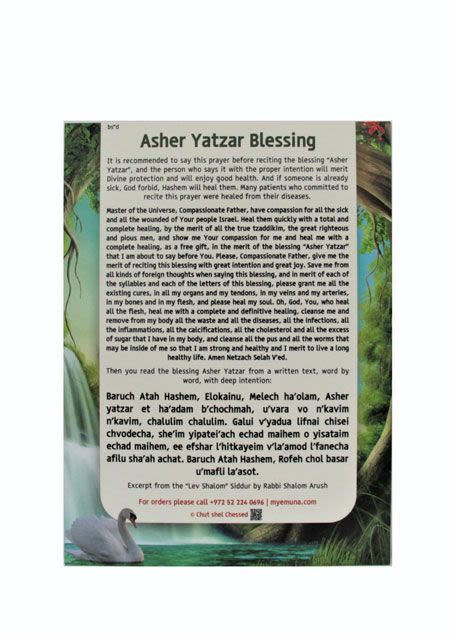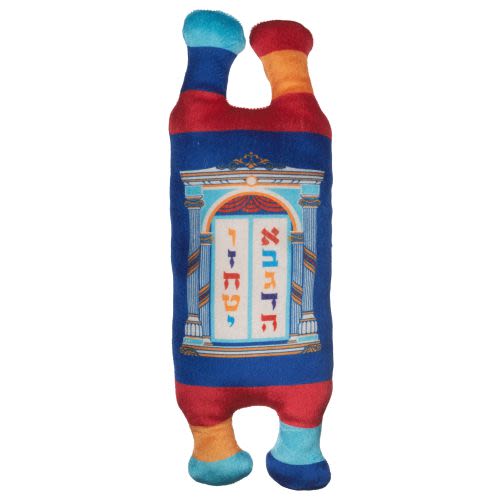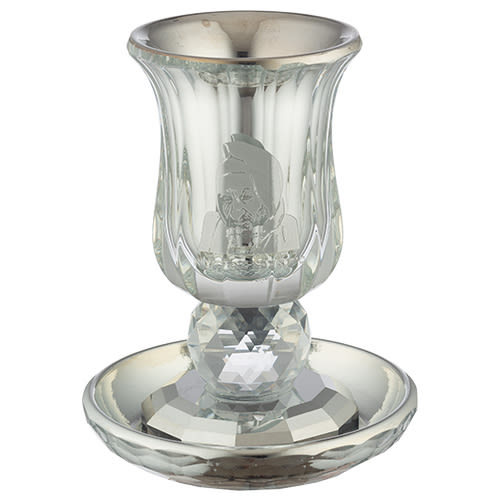
Zot HaBracha: The Happy End
Once a soldier functions properly in wartime, he proves that all his previous training has been worthwhile. The end attests to the beginning...

"…his eye had not dimmed, and his vigor had not diminished."(Deuteronomy 34:7).
Here, in the Torah portion that concludes the Torah and tells of the conclusion of Moses's life, we learn that he was still healthy and young-looking on his 120th birthday, the day he left the physical world. We ask ourselves, is this all the Torah finds to praise the greatest prophet of all times, the tzaddik of all tzaddikim who attained a level of holiness that no other human in history ever attained? Why must we know that Moses still had rosy cheeks and and good eyesight on the day he died? The Torah's apparently physical description of Moses goes far deeper, as our sages teach us. Rabbenu Bachiya ben Asher teaches that "His eye had not dimmed" means that the Divine light emanated from Moses's face and "his vigor had not diminished" indicates that the Divine Presence enveloped him.
The Torah testifies that Moses was a worthy vessel for the Divine Presence and that he lived his entire life in holiness. We learn here that the end of a person's life attests to the beginning. How?
An elite combat soldier undergoes long and arduous training. Before he even begins basic training, he is tested in a number of areas, both physical and mental, to determine if he has the potential to succeed. Once accepted into the unit, he begins basic training. Afterwards, there's advanced infantry training. Then, there are specialty courses such as urban, desert and mountain warfare. The soldier is often sent to learn additional  skills, such as parachute, intelligence, communications and/or medic training. If he gains additional responsibility, he is sent to non-commissioned officer's school, sergeant's course, and possibly officer's school. As he moves up the ranks, the challenges become more difficult rather than easier. Yet, the soldier's worth remains a question-mark until his performance in combat, under fire. Once he functions properly in wartime, he proves that all his previous training has been worthwhile. The end attests to the beginning.
skills, such as parachute, intelligence, communications and/or medic training. If he gains additional responsibility, he is sent to non-commissioned officer's school, sergeant's course, and possibly officer's school. As he moves up the ranks, the challenges become more difficult rather than easier. Yet, the soldier's worth remains a question-mark until his performance in combat, under fire. Once he functions properly in wartime, he proves that all his previous training has been worthwhile. The end attests to the beginning.
This is an important lesson for all of us. Once a yeshiva student gets married, we see in retrospect the value of the Torah and ethics he learned, and whether he internalized them or not. When the same young man goes out into the world of commerce to make a living, the way he conducts his affairs attests to the Torah he learned in Kollel.
Our sages teach us to remember that one day, we too will leave this world. This is a powerful reminder for us to continue climbing in spiritual growth until the day we die. Why, if a person slides, Heaven forbid, he shows that his whole past was dubious, unless of course he strengthens himself and comes back to Hashem with even greater vigor and dedication than before.
One may have had doubts about Moses. Unlike his brother Aaron who grew up with a Jewish education, Moses grew up as the foster son of Pharaoh. His younger years were spent in Pharaoh's palace and not in cheder. But, despite his secular education, we see that Moses was always holy, for his end attests to his beginning.
Many baalei teshuva, newly observant Jews or those who were not born into observant homes but became observant on their own, sometimes feel like second-class citizens. On the contrary, they should feel wonderful about themselves, but their end attests to their true nature – once they found truth, they clung to it.
The Gemara teaches that a life of Torah always leads to a happy ending. During the Simchat Bet Hashoeva celebrations in the Holy Temple during Chol Hamoed Succoth, the righteous tzaddikim who grew up in Torah and in holiness would sing, "Happy are we, that our old age doesn't shame our youth" (tractate Succa 53a). In other words, just as we grew up in Torah, we have continued growing in Torah all our lives. Because of their love of Torah, the holy tzaddikim during the time of the Holy Temple had the vigor to dance all night, juggle and perform phenomenal gymnastic stunts even at their old age.
The baalei teshuva during the time of the Holy Temple also sang, "Happy are we." They would sing, "Happy is our old age that atones for our youth (ibid)." The Gemara then mentions that both the tzaddikim and the baalei teshuva would sing, "Happy is he who doesn't sin; if he sinned, let him return and he will be forgiven."
From the last parsha of Torah, we learn that every Jew has the right to a happy ending. Chag Sameach, happy holidays!











Tell us what you think!
Thank you for your comment!
It will be published after approval by the Editor.